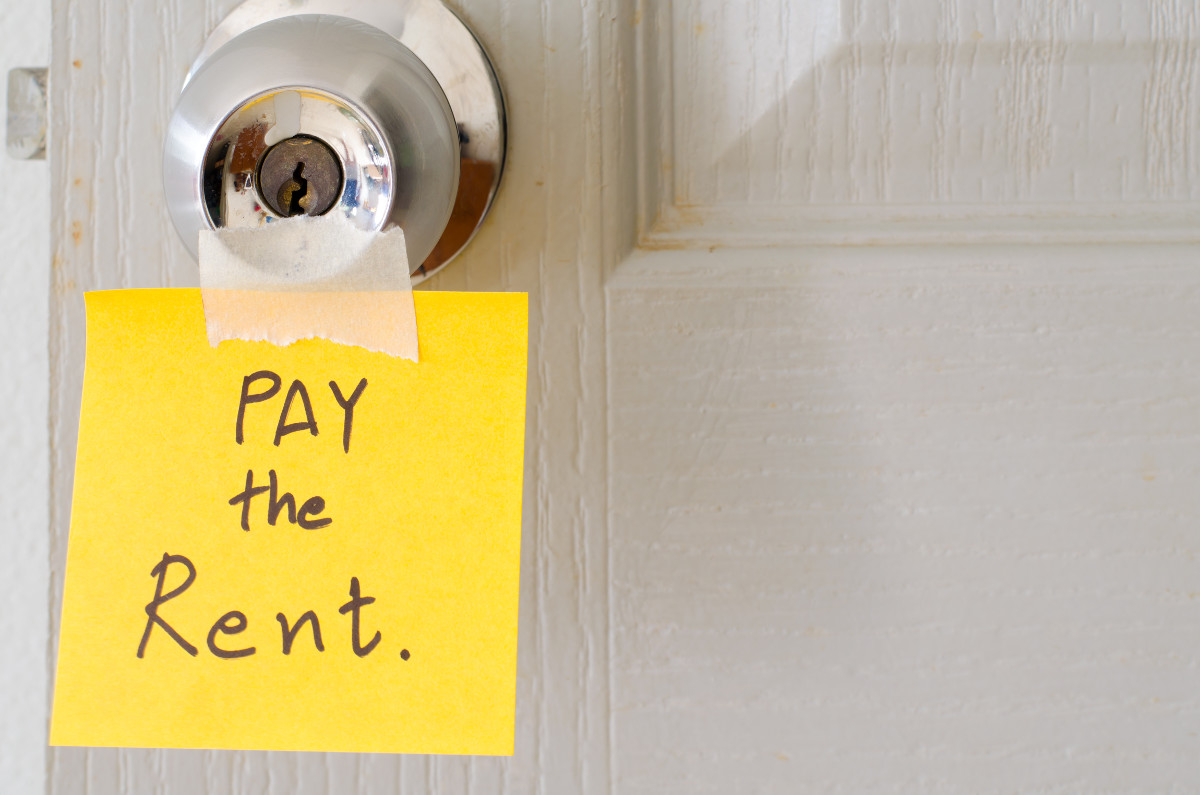How to Get Out of Paying Late Rent Fees
Are you running late on paying your bills? This guide will answer your questions regarding late rental fees and how to settle the problem with small financial loss.

Running late on the rent? Just like with any bill, you're probably going to be charged a late fee. Most landlords do so even if it’s just a few days after the due date. Is that legal? Well, it depends. If you’ve found yourself in this kind of situation, it’s best to move forward armed with the right kind of knowledge. You definitely don’t want to end up with no money and no home, right? So, let’s delve a little bit into the world of rental fees.
Are Late Rent Fees Legal?
The short answer is that it depends. The only way that your landlord should be able to charge you a late fee is if it is explicitly written on your lease or rental agreement and the conditions stated within follow local state laws. If your rental agreement does not include a late fee clause, then you are well within your tenants’ rights to refuse payment of the late fee. Of course, if it’s just a measly $10, it might be in your best interest to pay it. Fighting over such a measly sum could negatively affect your relationship with the landlord. If the fee is an exorbitant amount, well, we’ll tackle that discussion later.
Are There Limits on Late Rent Fees?
We’ve already mentioned that the late fee clause must be included in your lease in order to be implemented. But that doesn’t mean that the landlord can add whatever he or she wants to the agreement. Most courts will only allow a landlord to charge a reasonable amount. More than 10 percent of the rental fee is generally considered too much or unreasonable because it raises a public policy issue, just like high-interest loans.
Also, a handful of states actually place restrictions on how much your landlord can charge you in terms of a late fee. Some states even have laws on when a landlord is allowed to charge a late fee, also called the grace period. For example, in Washington D.C., a landlord is not allowed to charge you a late fee unless the payment is at least 5 days late. In Maine, the grace period is 15 days from the due date.
Since most states do not place the limit in dollar amounts, it’s important that you become well-versed in your state’s tenant laws. Also, take note that these rules do vary between states. For example, in Maine, a late fee should be no more than 4 percent of the rent while the laws in New Mexico allow up to 10 percent of the rent to be charged as a late fee.
What should you do if your late fee is too high?

Yes, you were late paying rent. But can the landlord really make you pay through the nose just because you were a teensy bit past the due date? “Well, we’ll see about that!” you say. Ok, before you get your pitchfork ready or take the case to court, let’s take a deep breath and talk about it.
Yes, most courts do frown upon late fees that are more than 10 percent of the monthly rent. And you are well within your rights to refuse payment. This is true even if you did sign a lease or contract that states your agreement to such an outlandish late fee clause. However, you will need to be prepared for possible consequences.
If there was no provision on late fees in your rental agreement, your landlord might end up asking you to move at the first legal opportunity. He can do this legally as long as he gives you proper notice. He can also refuse to renew your lease once it expires. This is because, in most states, landlords are not required to give a reason when terminating a month-to-month tenant or refusing to renew a lease. Some states do prohibit landlord retaliation, but you will still be in a legal fight which may cost you your home.
If you did agree to the policy, the landlord could threaten you with an eviction lawsuit for breaking a lease provision. Now, you can challenge this in court because, as we've mentioned, most courts find late fees that are more than 10 percent of the rent similar to outrageous high-interest loans which are a public policy issue. However, while the court may listen to your defense, it does not guarantee that they will rule in your favor. The landlord can still claim that you waived your right to protest the fee when you signed the contract.
So, what should you do? Experts recommend that you don't risk the threat of an eviction lawsuit because it's not a guaranteed win. Instead, you should pay the fee if you can and then ask a judge to order the landlord to refund the fee via a lawsuit in small claims court. This does not put your home at risk should the decision not be in your favor. However, you may get a termination notice as soon as it is legally possible for the landlord to send you one. In short, it is well within your interest to start looking for a new home, even if it’s much sooner than you planned.
What should you do if you can't pay rent on time?

If you are unable to pay rent on time, there are a number of things you can do which will depend on the reason you cannot meet the due date.
If the reason for the late payment is due to travel (you’re going out of town) or the due date is on a holiday, then you should send the payment earlier to avoid any disagreements with your landlord. You can also ask your landlord for alternative modes of payment such as wire transfers or Paypal. This good faith effort may enable the landlord to be more lenient about the late fee.
However, not all of us are able to send payment early – some live paycheck-to-paycheck. If this is the case, it’s important that you inform your landlord as soon as possible. Letting her know ahead of time can help her plan ahead. Landlords are not millionaires (at least, not all of them) and they also have bills to pay. Even if you’re dealing with an agency, the same rule applies. Being upfront about it and staying accessible can earn you some brownie points and possible leeway.
How about if the reason for the late payment is due to a cash flow problem? Again, we recommend talking to your landlord or property manager. Give them notice ahead of time. Take note that these people are used to hearing excuses from tenants about why they are late in paying rent or not being able to pay rent. Some may be sympathetic and cut you a bit of slack. But if things aren’t going your way during the discussion (e.g., the landlord simply can’t make an exception because then she may be accused of discrimination if she doesn’t give everyone the same leniency), then you need to find a secondary source of income to try to meet the rent. One good option is to look at personal loans for emergency purposes. There are a lot of lenders who provide low-interest rates on their personal loans, particularly if you have good credit. In some cases, a loan is the better alternative to paying rent late. Aside from the possibility of getting charged with a late fee, a late payment can go into your credit history.
What if I receive a rent subsidy?
If you receive a rent subsidy, the landlord cannot charge you a late fee based on the entire month’s rent. He can only calculate the late fee based on your tenant share of the rent. If the subsidy agency was the reason for the late payment, the landlord could not charge you a late fee. This is as long as you were able to pay your share on time.


